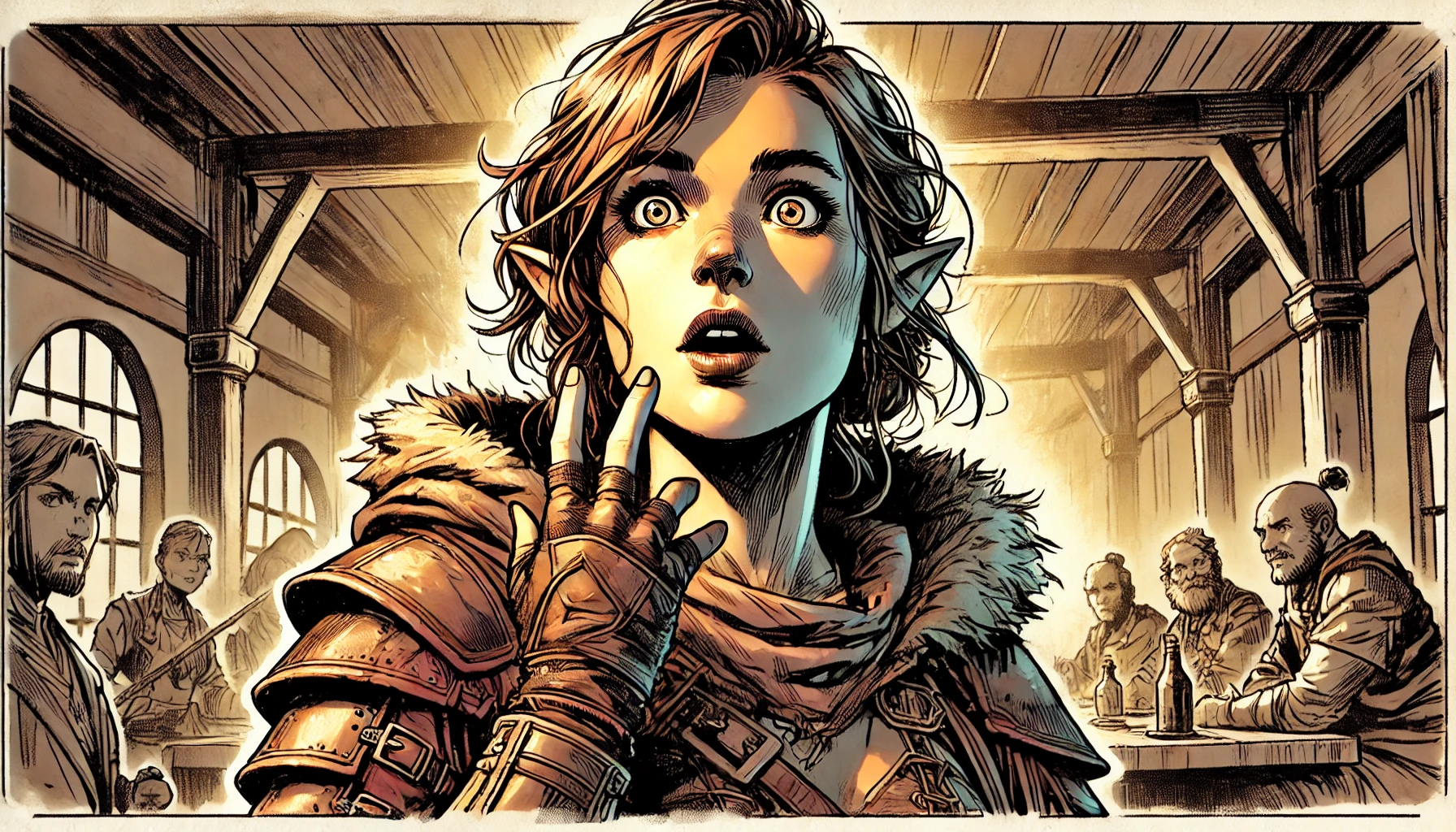The Rogue—just the name conjures images of velvet shadows and swift, silent precision. In the classic Dungeons & Dragons tapestry, the Rogue often slinks into the role of thief or assassin: picking pockets, disarming traps, whispering secrets from the back alleys. From Faerûn’s bustling metropolis to deep dungeon corridors, players and Dungeon Masters alike have relied on this archetype for sneaking, scheming, and the occasional backstab.
Yet, somewhere amidst the flick of a dagger or the gleam of stolen loot, the Rogue’s reputation can start to calcify. They’re often typecast as the party’s lockpick, the hoarder of coin purses, the character whose motivation rarely stretches past self-interest or vengeance. This predictability becomes its own kind of prison, shutting the door on the vast, narrative possibilities simmering beneath the Rogue’s hooded facade.
But what if we cut deeper? What if the Rogue’s abilities—deception, adaptability, and mastery of secrets—aren’t just party utilities, but the seeds of campaign-changing, world-shaking events? Imagine the Rogue as a fulcrum: an influencer pulling strings behind the scenes, a harbinger smuggling plot threads, a powder keg of secrets ready to explode. They can be the linchpin that transforms a story from a well-trodden heist to a grand, unpredictable epic.
This article is your guide to forging one unforgettable campaign twist using a Rogue’s unique strengths. We’ll move beyond the thief-turned-hero and into realms where a single character can ripple through destinies, upend alliances, and give your table something to talk about for years to come.
Setting the Stage for the Twist
The finest twists aren’t built overnight—they simmer in the undertow of your campaign, waiting for just the right moment to surge. If you want your Rogue to become something more than a loose-limbed sneak, you’ll need to start planting the seeds early and carefully.
Begin at session zero, where the bedrock of your story forms. Work with your Rogue player (or, if you’re cooking up a DM-level surprise, keep things close to your chest) to intertwine their background with campaign mysteries or hidden factions. Maybe the Rogue’s former “employer” is a rising power in the region, or their family name is known only in the most hushed circles. Whatever hook you choose, make it seem like just another thread—nothing so ostentatious that suspicion rears its head too soon.
Try my AI Tabletop RPG generators...and an extensive library of content!
Next, lace your campaign world with Rogue-friendly narrative tools. Dot your adventure with enigmatic NPCs: a recurring fence who seems unusually invested, a shadowy wizard who knows the Rogue’s past, or a rival thief that keeps cropping up at the most inconvenient times. Use these characters to drip-feed curious details—smatterings of coded language, half-remembered secrets, or objects that seem to mean more than they should.
Resist the urge for immediacy; the greatest payoffs come from slow-burn reveals. Establish a comforting routine—a few dungeons, a couple of heists, maybe a bar brawl or two—before you let the darker tendrils of the twist entwine. Prioritize normalcy. Let the party (and the players) settle into the rhythm of their world, so when the twist finally lands, it’s as destabilizing as it is surprising.
Don’t be afraid to collaborate with your table, but select your confidants carefully. Sometimes, letting the Rogue’s player in on the secret builds investment and delivers a richer performance. Other times, keeping the twist private between DM and dice can create a jaw-dropping, collective “aha!” when the time is right. Know your group: do they crave surprise, or would they rather be co-conspirators?
Above all, remember—every mystery needs misdirection and momentum. The Rogue may be the keystone, but your whole campaign world should quietly hum with the possibility that nothing is quite what it seems.
⚔️ Fantasy RPG Random Tables Books
Make life as a Gamemaster easier…
If you play Dungeons & Dragons, Pathfinder, or other fantasy RPGs, this
RPG random tables series
is packed with encounters, NPCs, treasure, and more. Available in eBook or print—either way, you’ll have a wealth of adventure ideas at your fingertips.
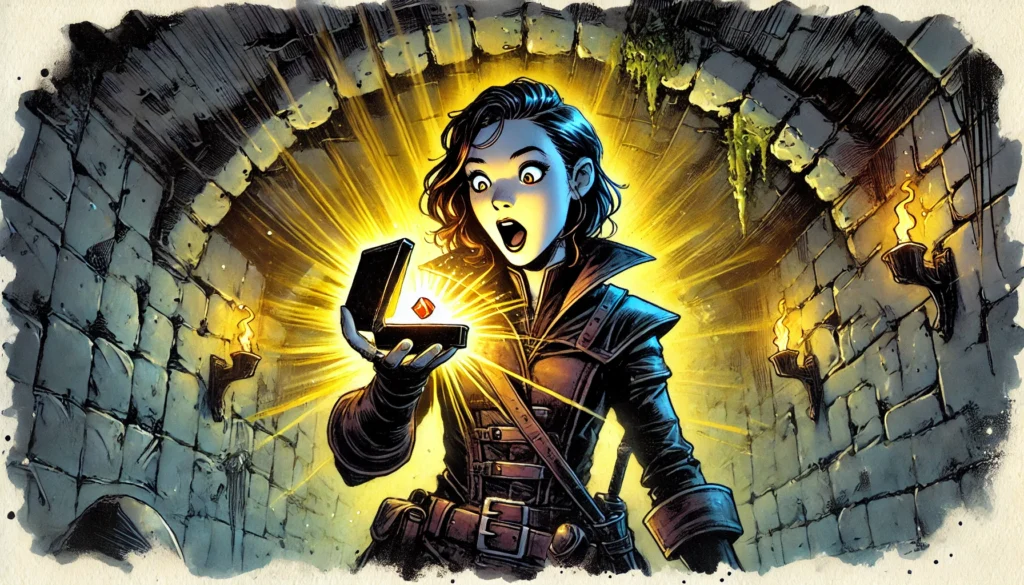
The Twist: The Rogue Was Never Just a PC
The heart of the twist is this: your Rogue isn’t just another adventurer. They are the campaign’s secret wild card, hiding an identity or purpose that could realign everything—relationships, loyalties, the very fate of kingdoms.
Perhaps the Rogue is a crowned heir hidden from their own past, moving through the world incognito until destiny catches up. Maybe they’re a sleeper agent for a shadow cabal, wracked with fragmented memories and conflicting loyalties. Or perhaps they are something even stranger—a traveler from another time, planted in the party to quietly alter the future, or the reincarnation of a god whose resurgence could shake the heavens.
To maximize impact, pace your reveal with a dramatist’s eye. Drop tantalizing hints: a recurring symbol only the Rogue seems to understand, visions that crescendo in urgency, NPCs who treat the Rogue with deference or dread. Collect your threads and let the tension ratchet up until the party’s assumptions—about their friend, their mission, or the world itself—begin to fray.
When the moment comes, don’t make the reveal a lone monologue. Let it be an event: a blood-soaked letter, a masked ball’s unmasking, a magical artifact that awakens long-dormant memories. Integrate the twist into the campaign’s broader narrative, so it doesn’t feel tacked on, but rather as if a missing puzzle piece has finally clicked into place.
Make sure the twist feels earned. Subtle foreshadowing and tight narrative integration go a long way towards making your table exclaim, “It all makes sense now!” rather than, “Wait, what just happened?”
Rogue Twist Variants:
- Heir to the enemy king’s throne, presumed dead since childhood.
- A sleeper agent for a monstrous cult with erased memories.
- The only survivor of a magical experiment, harboring latent arcane powers.
- Reincarnation of a forgotten deity, hunted by rival gods.
- Secretly the child of the campaign’s main villain, split by loyalties.
- A time traveler trying to prevent (or assure) a coming apocalypse.
- Former leader of a thieves’ guild ousted by betrayal.
- Chosen avatar of a trickster god, dispensing chaos unconsciously.
- Dragon polymorphed into human form, gathering intel on mortals.
- Cursed immortal who remembers every past life.
- Agent for a distant empire’s secret intelligence order.
- Member of a magical bloodline that awakens under stress.
- Clone with suppressed memories of the campaign’s ancient hero.
- Bound host to a sentient artifact guiding their actions.
- Spy for the city’s ruling council, sent to monitor the party.
- Doppelganger impersonating the “real” Rogue, who is missing.
- Shadowy informant for a rebel faction.
- Escaped experiment from a wizard’s lab, hunted relentlessly.
- Possessor of a prophecy about the party’s doom (or salvation).
When the truth bursts loose, everything changes—alliances tremble, priorities shift. The best twists refocus the campaign: the party must now decide who they trust, what their goal truly is, and whether past quests still matter. Handled well, the twist draws everyone deeper into the story, enriching and complicating the adventure rather than derailing it.
As the echoes settle, you’ll witness new bonds—and maybe new fractures—forming at the table. But so long as the twist is designed to add richness and possibility, rather than steal agency or fun, it will become a milestone moment—one that lingers long after dice have stopped rolling.
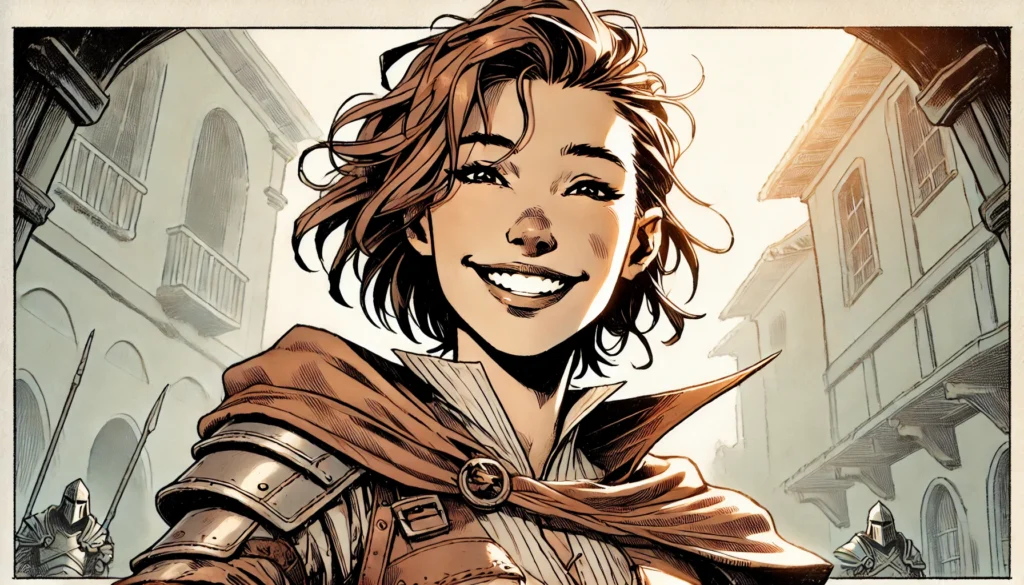
Planning for the Fallout
After the smoke clears from the big reveal, the real drama begins. Party members might greet the Rogue with suspicion or empathy, old rivalries may ignite into infernos, and fresh moral dilemmas could sprout at every turn. The DM’s job is to cultivate this uncertainty, not quash it.
Let players freely determine their characters’ responses—maybe the paladin’s code demands a reckoning, or the bard senses an opportunity for new tales. Some may feel betrayed, others invigorated by the new narrative possibilities. This is a precious juncture; resist railroading. Instead, set scenes that force the group to navigate these emotions: a heated fireside confrontation, a council where trust must be bargained, or a mission where the Rogue’s new status confers both danger and advantage.
In the longer term, campaign stakes may need recalibration. If the Rogue is suddenly heir to the throne, every political intrigue gains new depth. If they’re a sleeper agent, the party could become embroiled in an underground war they never saw coming. Lean into these ripple effects—let the twist become the campaign’s new gravity, drawing in plans, enemies, and ambitions alike.
Preparation is key. Keep a few branching outlines ready, offer NPCs who can serve as confidants, threats, or foils, and actively listen to players’ emotional reactions. If anger or confusion thunders, acknowledge it in-game and give room for characters to process. The fallout is a forge, and the sword of your campaign will be all the sharper for it.
⚔️ Fantasy RPG Random Tables Books
Make life as a Gamemaster easier…
If you play Dungeons & Dragons, Pathfinder, or other fantasy RPGs, this
RPG random tables series
is packed with encounters, NPCs, treasure, and more. Available in eBook or print—either way, you’ll have a wealth of adventure ideas at your fingertips.
Fallout Outcomes Table
| Twist Type | Immediate Player Reaction | Long-Term Campaign Effect | DM Prep Required |
|---|---|---|---|
| Hidden Royal Heir | Shock, awe, questions | Political intrigue, new quest motivations | Faction politics, lore |
| Sleeper Agent | Suspicion, anger, mistrust | Espionage plots, internal suspicion | Secret factions, clues |
| Time Traveler | Confusion, fascination | Timelines shift, prophecy, paradoxes | Future timeline planning |
| Reincarnated God | Reverence, fear, disbelief | Divine stakes, new enemies/allies | Pantheon, religious lore |
| Villain’s Child | Betrayal, protectiveness | Family drama, party division/loyalty tests | Villain motivations |
| Polymorphed Dragon | Stunned respect, unease | Dragon politics, scales of power | Draconic NPCs, motives |
| Clone/Amnesiac Hero | Empathy, philosophical debate | Lost memories quest, existential puzzles | Memory clues, ancient lore |
| Escaped Magical Experiment | Pity, concern, investigation | Pursued by wizards, cover-ups | Wizard NPCs, arcane law |
| Doppelganger Replacement | Paranoia, suspicion | Search for original, infiltration themes | Doppelganger mechanics |
| Shadowy Council Spy | Distrust, strategic thinking | Political manipulation, reputation at risk | Council machinations |
Throughout every twist and consequence, remember: your job isn’t to control the fallout, but to guide it. The best sessions are those where players feel their choices matter, where the world reacts and evolves, and where stories grow wild and unforgettable from seeds of uncertainty.
Encourage flexibility. If a twist spawns new character goals or conflicts you hadn’t planned, lean in. Use fallout scenes—confessions, confrontations, new plans—to bond your group together, forging shared investment in the ever-twisting narrative. These are the moments your group will remember, long after dungeons have been plundered.
Rogue Skills as Narrative Weapons
The Rogue’s classic arsenal—Sneak Attack, Cunning Action, Thieves’ Cant, and so on—can be far more than dice-rollers for combat. Fully realized, these skills are the implements of intrigue, double lives, and grand conspiracies.
Take Cunning Action: more than just an extra dash or a swift disengage, it can represent a life honed in constant vigilance, always poised to escape suspicion or capture. Thieves’ Cant, too, blossoms as a narrative tool—secret messages scratched into tavern walls, coded phrases whispered in the market, clandestine meetings only the Rogue can unravel.
Even the humble Sneak Attack speaks of calculated risk and surgical precision: perhaps the Rogue isn’t just striking from the shadows but metaphorically upending the entire status quo with one well-timed maneuver. Insight can shift from “reading lies” to steering the party’s choices, while Persuasion and Deception set the stage for double-blinds and triple-crosses.
By centering these abilities in your twist, you turn mechanics into story fuel. The party’s trusted lockpicker suddenly reveals coded missives in their Thieves’ Cant, or disables a supposedly “unknown” trap with ease. The trap is no longer just on the dungeon floor—it’s in the hearts of those who trust the Rogue.
Repurposing Rogue Abilities for Narrative Twists:
- Sneak Attack: Plotting out a single, devastating move that changes the course of a campaign event.
- Cunning Action: Swiftly escaping from social or political fallout, representing a practiced ability to “slip the leash.”
- Thieves’ Cant: Communicating with spies/factions, delivering or intercepting secret information.
- Insight: Manipulating party decisions with subtle reading and nudging of emotions.
- Deception: Constructing elaborate cover stories, or even an entire false identity.
- Stealth: Remaining unnoticed in critical moments, eavesdropping on nefarious plots.
- Investigation: Uncovering (or concealing) true motives, perhaps erasing tracks left behind.
- Sleight of Hand: Beyond pickpocketing—planting evidence, switching items, sabotaging traps from the inside.
- Persuasion: Turning foes into unwitting allies, or calming tensions at the moment of reveal.
- Alertness: Sensing danger that ties into their hidden agenda or secret knowledge.
- Evasion: Sidestepping magical or narrative “nets” meant to unveil secrets.
- Disguise Kit: Assuming key NPC roles or even playing double-agent against the party.
- Poison Kit: Secretly dosing enemies or impediments to set up campaign events.
- Tool Proficiencies: Using specialized knowledge for intelligence-gathering or sabotaging rival factions.
Challenge your group—players and DMs alike—to envision mechanics not as boxes on a sheet, but as keys to story doors. When class features become narrative choices, every roll and check is loaded with possibility.
Reimagine the Rogue’s skillset as a toolkit for tension, mystery, and surprise. Think creatively, let character and mechanics serve each other, and watch as the adventure blossoms into something worthy of legend.
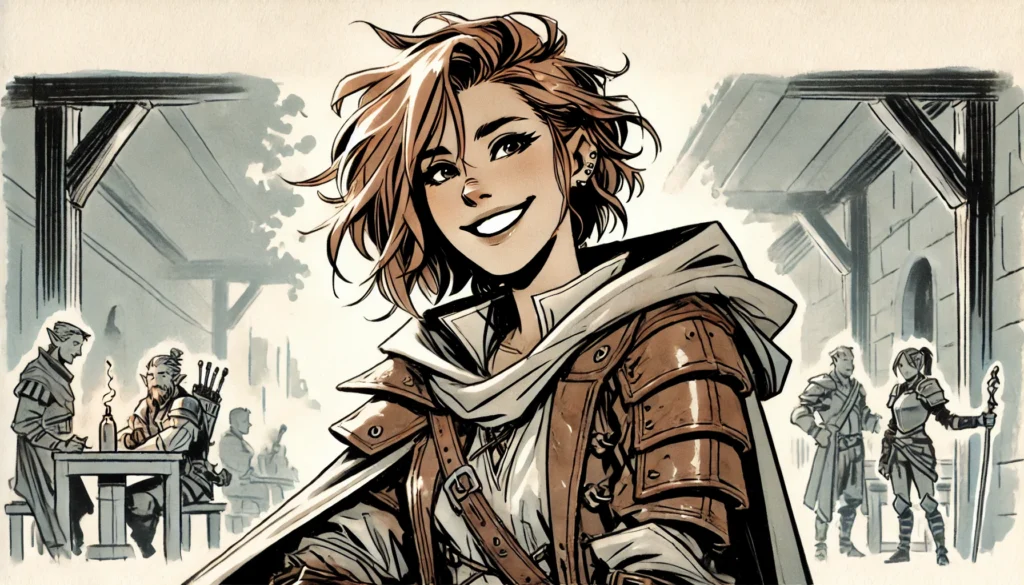
Executing the Reveal
Timing is the linchpin. The most electrifying twist reveals aren’t whispered in a tavern at midnight, but thrown down at the table when the stakes are highest. Pay attention to the campaign’s emotional pulse: is your party on the verge of victory, or facing a brutal setback? Perhaps a tense negotiation, the aftermath of a pyrrhic win, or the edge of disaster—these are the moments ripe for narrative fireworks.
Don’t rush. Let suspense coil. The Rogue’s secret should feel like a bomb primed to detonate, its presence sensed but not seen. Watch your players: if their characters are growing close, if trust has been earned and disappointment will sting, you have the perfect setup for drama.
Above all, avoid the “gotcha.” The reveal should never alienate or humiliate; it should leave your table staggered and hungry for the next story beat. Consider a revelation that comes just after a major victory, casting new light on hard-won achievements—or in the jaws of defeat, reframing despair as opportunity.
Tools and Signals
Subtlety is your greatest ally. Use in-game cues and careful session prep to weave an undercurrent of mystery that only blooms in hindsight.
First, plant roleplay clues: cryptic remarks by NPCs, strange dreams that brush the edge of memory, or convenient coincidences that only later reveal their design. Use physical or magical objects—amulets, faded letters, recurring motifs—that seem innocuous until the moment of revelation.
When building the Rogue’s backstory collaboratively, work with your player to seed these clues organically. If you’re working alone, keep track of what’s been sprinkled so you can draw everything together with satisfying logic.
Above all, foreshadowing should be present but not heavy-handed. If you do your job well, the twist will feel inevitable—like a door everyone always knew was there but never thought to open.
Subtle Foreshadowing Techniques:
- NPCs using cryptic titles or codes in the Rogue’s presence.
- The Rogue experiencing vague memory gaps or “déjà vu.”
- Patron deities or magical beings hinting at the Rogue’s past.
- Recurring dream sequences that change with campaign milestones.
- Personal effects (lockets, daggers) inscribed with strange runes or symbols.
- Enemies hesitating or fleeing when facing the Rogue.
- Secret messages only visible to the Rogue (Thieves’ Cant, magical ink).
- The Rogue’s unusual resistance to certain magic or curses.
- Shared histories with NPCs who “shouldn’t” know them.
- Letters or missives addressed in an unknown hand.
- Background checks by officialdom that yield inconsistencies.
- Unexplained resources, such as hidden caches or secret contacts.
The best twists reward careful, engaged players. If they start to connect the dots before the full reveal, let them savor their suspicions—just don’t drop the mask too soon. A well-timed revelation shatters not just expectations, but the invisible wall between player and world, making everyone feel like co-authors of something grand.
Try my AI Tabletop RPG generators...and an extensive library of content!
Let the clues be there for those who hunt them. The twist should feel like dawn, not a lightning bolt—illuminating what was always underneath, now seen in astonishing new light.
Rogue Twist Success Stories
In one legendary campaign, the party’s beloved Rogue—always quick with a joke, never quite present at dawn—was revealed to be the disinherited son of the pirate king they’d been hired to stop. The session’s tension spiked as knives were drawn, but through roleplay (and a little creative panache) the party managed to broker an alliance. The campaign shifted from a standard treasure hunt to a sprawling tale of redemption and betrayal across the high seas.
Elsewhere, a Warforged Rogue, seemingly an odd fit for the group’s grimbarrow crawl, began having vivid, intrusive visions. It turned out they were the reincarnation of a long-dead god, their clockwork body the vessel for awakening ancient magic. The revelation altered party goals entirely: the mission shifted from dungeon delving to protecting—and perhaps exploiting—the Rogue’s reborn divinity.
One humble urban intrigue saw the Rogue revealed not as a gutter thief, but as a doppelganger—herald of an invasion poised to replace the city’s power structure with shapeshifters. The party realized the “real” Rogue they’d recruited was missing, and suddenly every NPC was a suspect. Paranoia, investigation, and hard-won trust made every session a master class in tension.
Still another campaign’s time-traveling Rogue quietly nudged critical events—but when they finally confessed their true origins, the party had to decide whether to help prevent an apocalypse, or whether meddling with time would spell even greater danger.
| Campaign Name/Setting | Twist Reveal Moment | Resulting Party Change/Revelation |
|---|---|---|
| Pirates & Redemption | Pirate king’s son emerges in mid-shipboard duel | Party forges new alliance, changes campaign arc |
| Gods of Gear | Warforged visions lead to divine revelation | Shift to protecting/understanding new godhood |
| Masks in the Mist | Doppelganger exposure during council trial | Party splits to find “real” Rogue, city intrigue |
| Ages Unbound | Confession before apocalyptic ritual | Seek to alter timeline, new existential stakes |
| Thrones of Shadow | Rogue’s royal sigil found after palace raid | Forced into politics, new enemies abound |
| Ashen Hearts | NPC reveals Rogue as cult infiltrator | Trust erodes, players choose sides |
| The Dragon’s Veil | Dragon form revealed during battle | Party gains new power, courts draconic politics |
| Mages’ Echo | Clone’s flashback under magical duress | Memory quest for original identity begins |
| Gold & Iron Streets | Secret Thieves’ Cant message decoded | Exposes conspiracy, new leads and foes |
| Labyrinth of Lies | Magic trap disables disguised, exposes true form | Party flees from newly revealed pursuers |
The true magic lies not just in the twist, but in the players’ embrace of new possibilities. Each example worked because it respected both character and campaign: the revelation fit the story’s tone, honored player investment, and—perhaps most importantly—invited everyone to shape what came next.
A great twist is never just a stunt or a DM’s power grab. It works because it deepens the world, challenges assumptions, and gives your players a seat at the table of fate. Align your reveal with your group’s strengths and aspirations, and you’ll forge memories that last long after the last campaign note has faded.
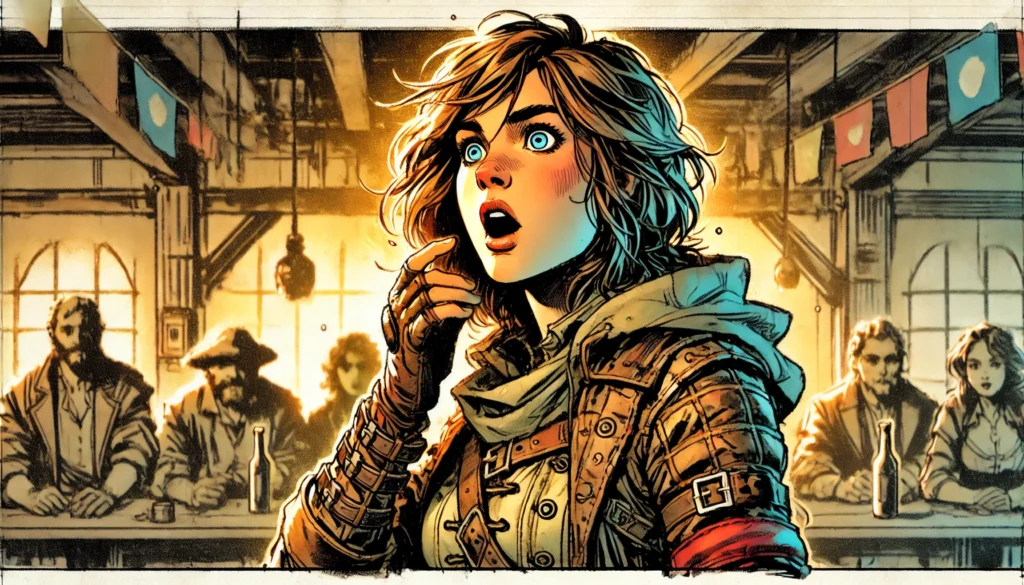
Final Thoughts on Rogue Twists
The Rogue, when elevated beyond the shadows, isn’t merely a set of skills or a stat block. They are potential incarnate—a catalyst for upheaval, growth, and story on a scale the most ornate dungeon could never contain. A well-crafted twist rooted in their secrets can transform even the humblest campaign into a labyrinth of drama and wonder.
⚔️ Fantasy RPG Random Tables Books
Make life as a Gamemaster easier…
If you play Dungeons & Dragons, Pathfinder, or other fantasy RPGs, this
RPG random tables series
is packed with encounters, NPCs, treasure, and more. Available in eBook or print—either way, you’ll have a wealth of adventure ideas at your fingertips.
Remember: genuine surprise flows not from randomness, but from narrative care. Collaborate with your players or, if secrecy is your weapon, craft a tale so solidly woven that the mask, when dropped, reveals the face your campaign always needed. Trust your table. Respect their agency. Let them help decide the future, even as the past comes roaring into the present.
And while Rogues draw power from what they can do—sleight of hand, blades in the dark—never forget that who they are defines the stories that rise and fall around them. Class mechanics are your scaffolding, but character is your cathedral.
So talk, collaborate, and be brave. The richest twists are those where everyone—player and DM alike—is ready to lean into the unknown. The Rogue, after all, is a master of uncertainty; let them guide your campaign into fresh, uncharted territory.
In the end, the joy of the table lies not just in slaying dragons or looting vaults, but in the gasp of revelation, the rush of new possibility, and the pleasure of knowing, for just a moment, that you changed the shape of the story itself. Honor that potential. Take risks. Let your Rogue be the twist the world never saw coming—but will never forget.

